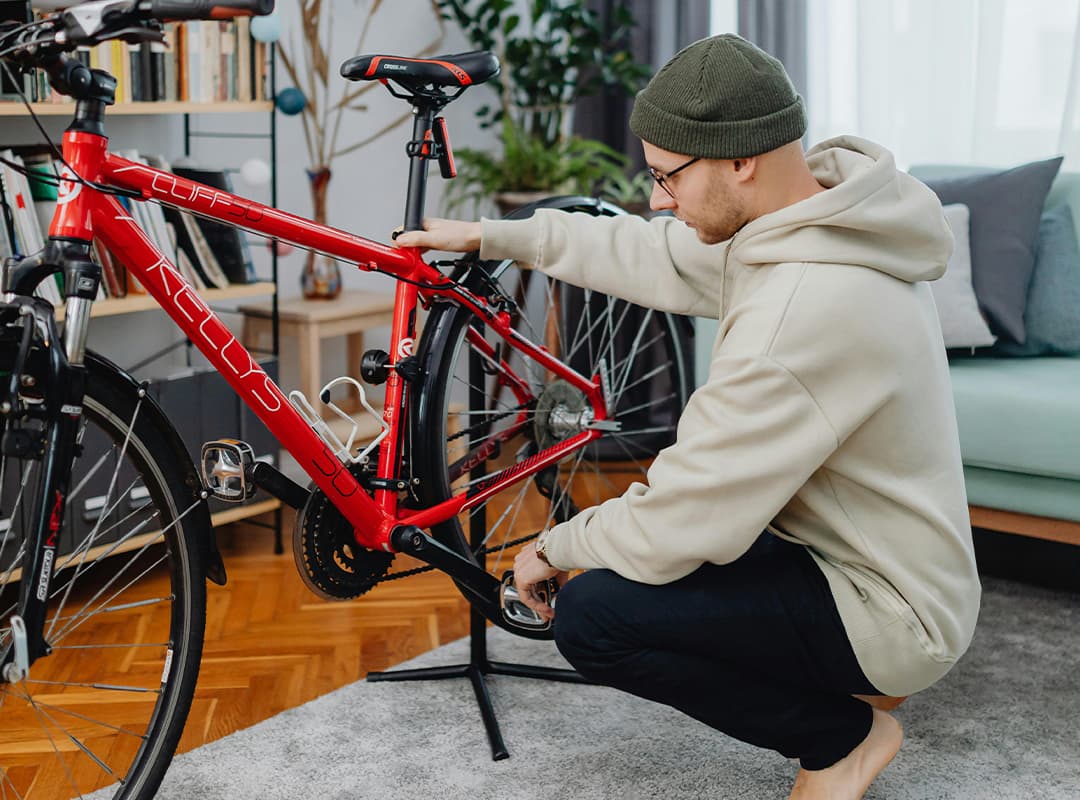Local bike shops play an essential role in transforming our cities and communities by offering sustainable alternatives to car use. With custom bikes, affordable repair services, and community-focused initiatives, these workshops enable more people to adopt cycling as a primary mode of transportation. The influence of local bike shops extends beyond just selling and repairing bicycles—they actively promote sustainable commuting, reduce traffic congestion, and advocate for greener urban planning.
1. Promoting Cycling as an Alternative to Driving
Local bike shops offer a range of services and guidance for both new and experienced riders. They not only sell bicycles but also help individuals find the right type of bike based on their needs and commuting habits.
- Custom Bike Options: Local shops often provide custom bikes tailored to each rider’s preferences, making commuting more comfortable and enjoyable. By customizing the bike’s frame, handlebars, saddle, and gearing, these shops can create an ideal bike setup for riders, encouraging them to choose cycling over driving.
- Accessibility for All Riders: Workshops often have bikes for every budget, along with maintenance plans to ensure the longevity of the bike. This accessibility allows more people to embrace cycling without the financial burden of car ownership.
2. Reducing Environmental Impact through Sustainable Commuting
Replacing even a portion of daily car commutes with biking can significantly decrease an individual’s carbon footprint. Local bike shops promote cycling as a sustainable, eco-friendly alternative.
- Fewer Emissions: By encouraging residents to cycle rather than drive, local bike shops contribute to a reduction in carbon emissions, which benefits air quality and public health.
- Eco-Friendly Maintenance: Many local shops also embrace environmentally conscious practices, such as recycling parts and offering eco-friendly products. This commitment further supports a sustainable cycling culture within the community.
3. Providing Essential Repair Services
The convenience of having a neighborhood bike shop makes it easy for riders to keep their bikes in top condition, encouraging continued use.
- Quick and Affordable Repairs: With routine maintenance like brake adjustments, tire changes, and chain replacements readily available, local bike shops minimize downtime, ensuring that bikes remain a reliable mode of transport.
- Emergency Repairs: These shops often provide quick-fix services, such as patching flats and tightening bolts, helping riders feel confident in using their bikes for daily commutes, even if an unexpected repair is needed.
4. Fostering a Strong Cycling Community
Local bike shops serve as community hubs, connecting cyclists of all levels and promoting a car-free lifestyle through group rides, workshops, and local events.
- Group Rides and Events: Many bike shops organize group rides that encourage camaraderie and mutual support among cyclists. These events create a sense of community and empower more people to ride in groups, making cycling safer and more enjoyable.
- Workshops for Skills Development: Local shops often host workshops on basic bike repair, safety, and maintenance, making cyclists more self-sufficient. Learning how to fix a flat tire or adjust gears empowers riders to tackle small repairs themselves, which is crucial for a reliable and safe cycling experience.
5. Influencing Urban Planning and Infrastructure
Local bike shops also advocate for cycling infrastructure, such as bike lanes and parking, which are essential to reducing car dependency and promoting safe cycling.
- Advocating for Bike-Friendly Streets: Many shops actively participate in community discussions and work with local governments to improve cycling infrastructure. They support initiatives like bike lanes, safe intersections, and designated bike parking.
- Raising Awareness on Cyclist Safety: By providing cyclists with proper safety gear, such as helmets, lights, and reflective accessories, bike shops emphasize the importance of safe commuting. They also educate riders on traffic laws and safety practices, helping to create a more respectful coexistence between cyclists and motorists.
6. Creating Economically Sustainable Neighborhoods
In addition to the environmental benefits, reducing car dependency can also boost the local economy. Bike shops contribute to this by encouraging residents to adopt cost-effective transportation options.
- Lower Commuting Costs: Biking drastically reduces commuting costs compared to car ownership, saving individuals on fuel, parking, and maintenance. By promoting these benefits, local bike shops make cycling an attractive alternative, particularly for those looking to save money.
- Supporting Local Businesses: Cyclists are more likely to shop locally as they can easily access neighborhood businesses. This shift reduces traffic congestion, pollution, and the economic drain associated with car commuting.
Local bike shops are essential for fostering a cycling culture that promotes sustainable living, reduces car dependency, and enhances community well-being. Through offering custom bikes, reliable repair services, and community-building activities, these shops support the shift towards greener, more connected cities. With each cyclist they help, local bike shops contribute to a more sustainable and resilient urban future. So, if you’re considering reducing your car usage, your local bike shop may just be the perfect place to start the journey.



